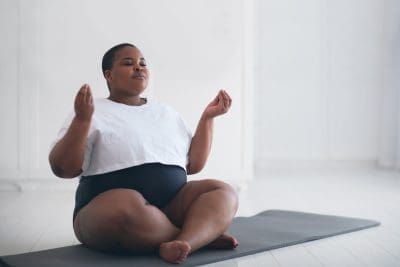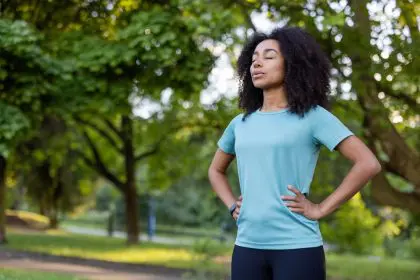Ever crawled into bed after crushing a late-night workout only to find yourself staring at the ceiling for hours? You’re not alone. The relationship between evening sweat sessions and sleep quality is more complicated than fitness influencers would have you believe.
The midnight muscle dilemma
Let’s be real. For many of us, squeezing in a workout means doing it after work, when the kids are in bed, or when the gym finally clears out. A night workout feels like a victory, like you’ve outsmarted your busy schedule. But your body might be keeping score differently.
When you exercise, your core temperature rises, your heart pumps faster, and your brain gets flooded with feel-good chemicals. That’s awesome at 7 AM. At 10 PM? Your body’s like “Wait, I thought we were winding down here?”
Your natural sleep-wake cycle, that internal clock that makes you yawn when the sun sets and perk up at dawn, gets some serious mixed signals from nighttime workouts. Your body releases cortisol during exercise, the same hormone that peaks in the morning to wake you up. Confusing, right?
Not all workouts are sleep villains
Before you cancel your evening gym membership, listen up. Not all nighttime exercise will turn you into a sleep-deprived zombie.
Low-intensity evening movement might actually help you sleep better. Think gentle yoga, walking, or light stretching. These activities can lower stress levels and prep your body for quality shut-eye without overactivating your system.
Timing matters more than you think. Working out 90 minutes to 2 hours before bedtime gives your body a chance to cool down and transition from “beast mode” to “sleep mode.” Your temperature drops, heart rate normalizes, and those stimulating hormones start to chill out.
Individual differences are huge. Some people could do jumping jacks minutes before bed and fall asleep instantly. Others might need a 3-hour buffer after a light walk. Your sensitivity to exercise’s arousing effects depends on genetics, fitness level, and even your mental approach to workouts.
The science of sweating after sunset
Without getting too nerdy, here’s what happens in your body when you exercise at night.
Exercise triggers the sympathetic nervous system, your body’s “gas pedal.” This increases alertness and energy, the opposite of what you want at bedtime. High-intensity workouts like HIIT, heavy lifting, or sprint training are especially stimulating.
Your body temperature naturally drops in the evening as part of your sleep preparation. Exercising causes it to rise temporarily, delaying that important cooling process that helps trigger sleepiness.
Those amazing endorphins that make exercise feel rewarding? They’re also pretty stimulating. Great for fighting afternoon fatigue, not so great for winding down.
Making night workouts work for you
If daytime exercise isn’t happening, you can still make evening workouts sleep-friendly with these tweaks.
Dial down the intensity. Save the heart-pounding, sweat-dripping workouts for mornings or afternoons. Evenings are perfect for strength training with longer rest periods, moderate cardio, or mobility work.
Create a post-workout wind-down ritual. Take a warm shower after exercising, dim the lights, avoid screens, and maybe try some gentle stretching or meditation. This signals to your body that it’s transition time.
Tweak your environment. Exercise in a room with dimmer lighting if possible. Bright gym lights tell your brain it’s daytime, making the sleep transition harder.
Watch what you consume. Skip pre-workout supplements with caffeine for evening sessions. That post-workout protein shake? Great, but avoid adding stimulating ingredients.
Be consistent. Your body adapts better to regular patterns. If you always work out at 8 PM, your system will gradually adjust expectations and may start preparing for sleep more efficiently afterward.
The sleep-exercise connection works both ways
Here’s something cool. While exercise affects sleep, sleep quality dramatically impacts your workout performance too.
Poor sleep decreases reaction time, reduces endurance, impairs recovery, and even affects decision-making during workouts. It’s a cycle worth getting right. Better sleep means better workouts means better sleep.
Finding your personal sweet spot
The ideal workout schedule is the one that consistently fits your life while supporting your health goals, including sleep quality.
Track your sleep for a couple weeks using a journal or app. Note when you exercised, what type of workout you did, and how you slept. Patterns will emerge showing your personal sweet spot for timing and intensity.
Try experimenting with cutting off high-intensity exercise at different times. Maybe 3 hours before bed works better than 2. Maybe morning workouts completely transform your sleep quality.
Listen to your body’s feedback. Feeling wired at bedtime after evening workouts? That’s valuable data. Sleeping like a baby after gentle evening yoga? That’s data too.
The bottom line on bedtime burpees
Working out at night definitely can mess with your sleep, but it doesn’t have to. The impact depends on workout intensity, timing, and your unique body. For most people, leaving a 1-2 hour buffer between vigorous exercise and bedtime makes a world of difference.
If late workouts are your only option, focus on optimizing everything else. That means creating a consistent bedtime routine, keeping your bedroom cool and dark, limiting screen time, and being mindful about caffeine and alcohol.
Getting both regular exercise and quality sleep is possible with a bit of experimentation and self-awareness. Your future well-rested, fit self will thank you for figuring out this balancing act.
















